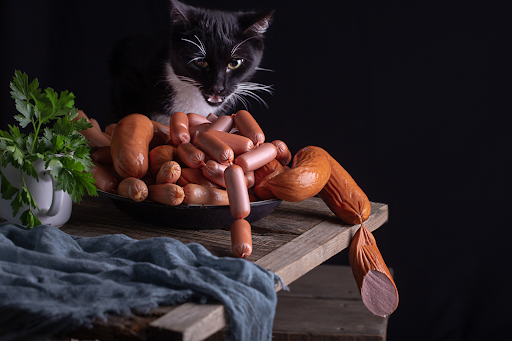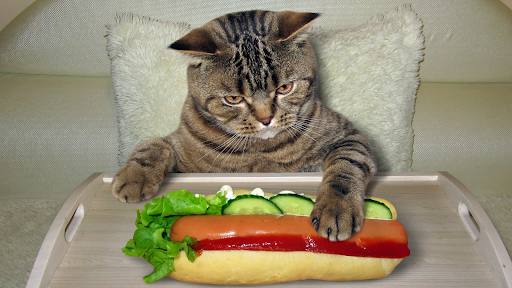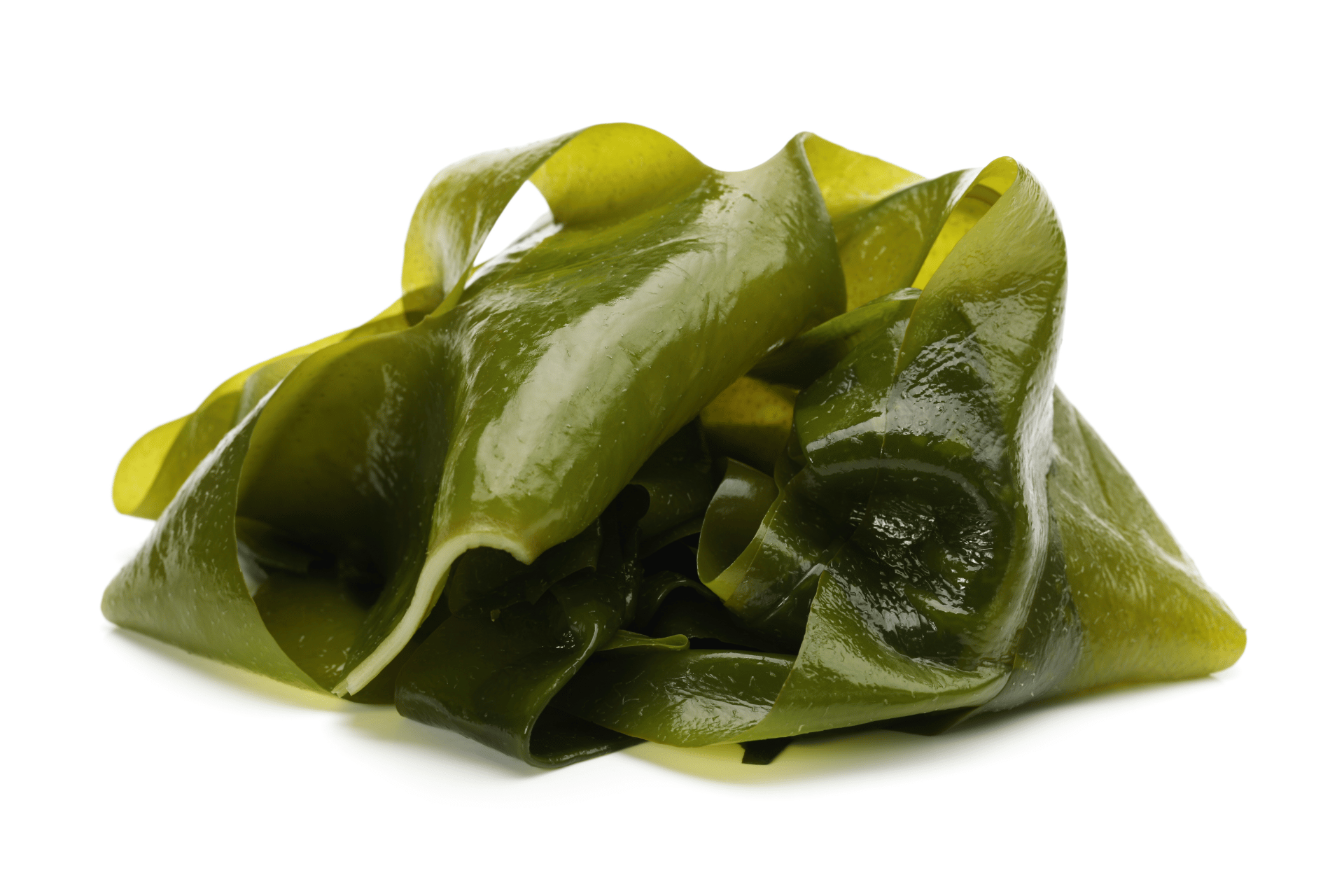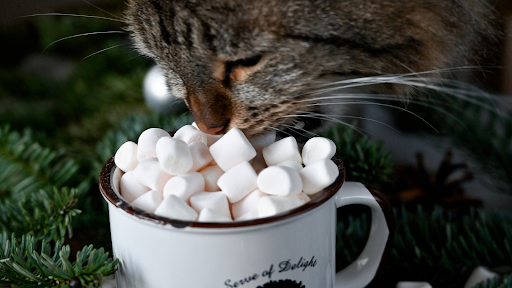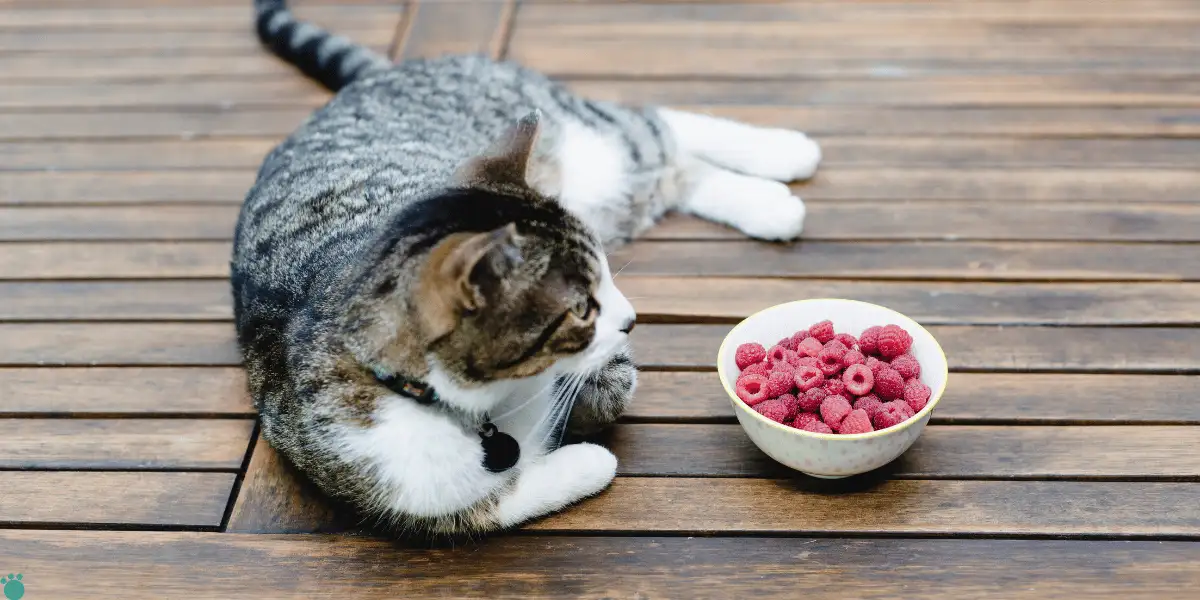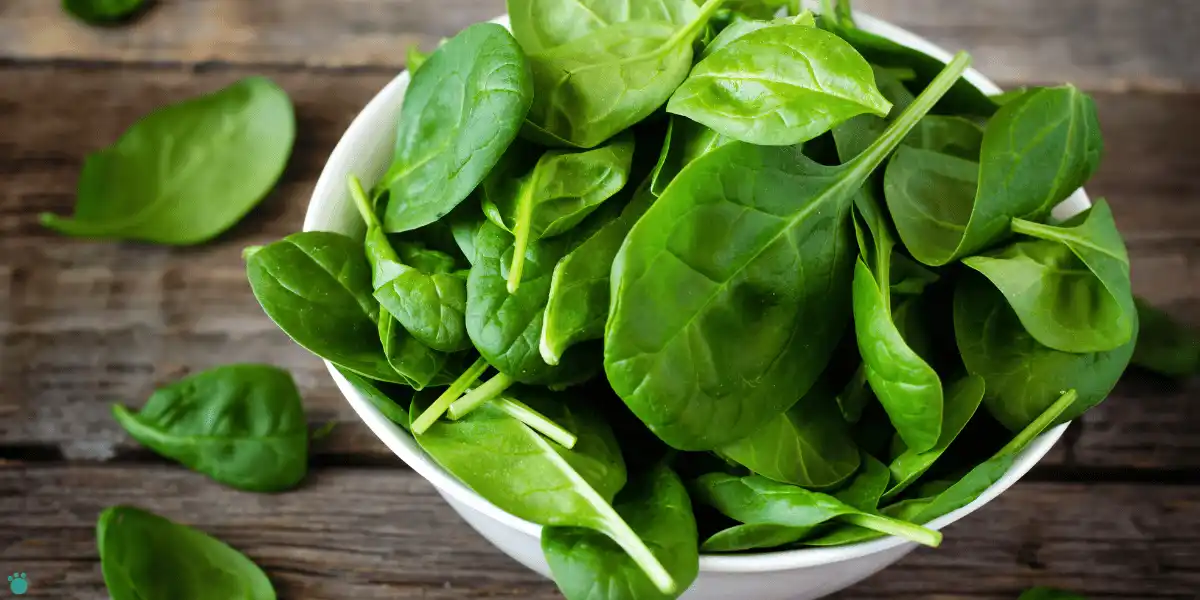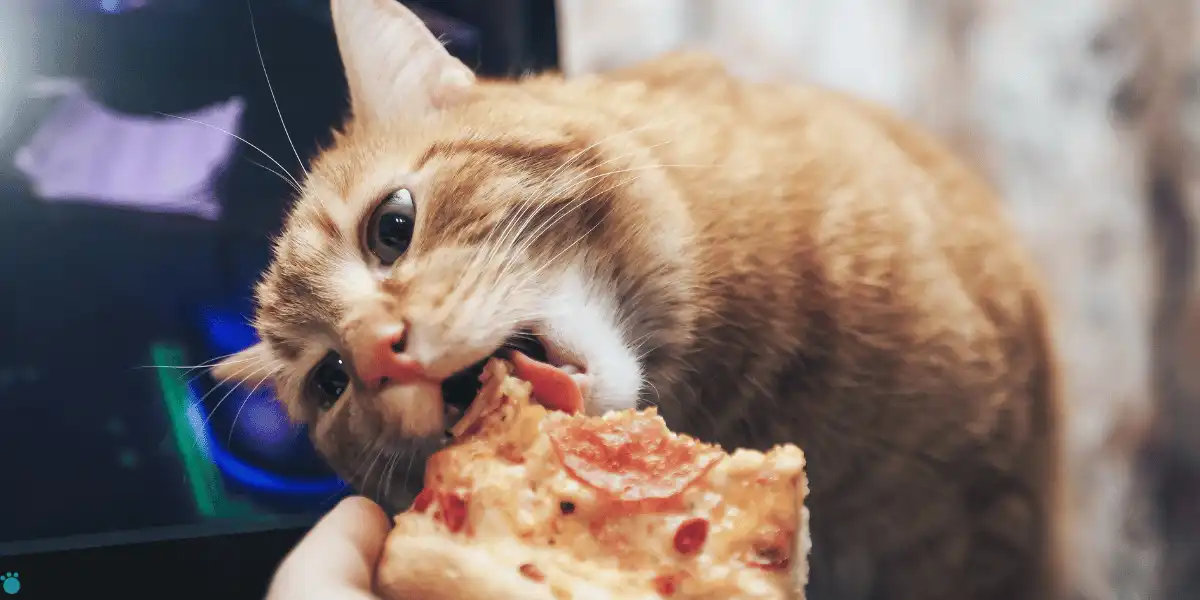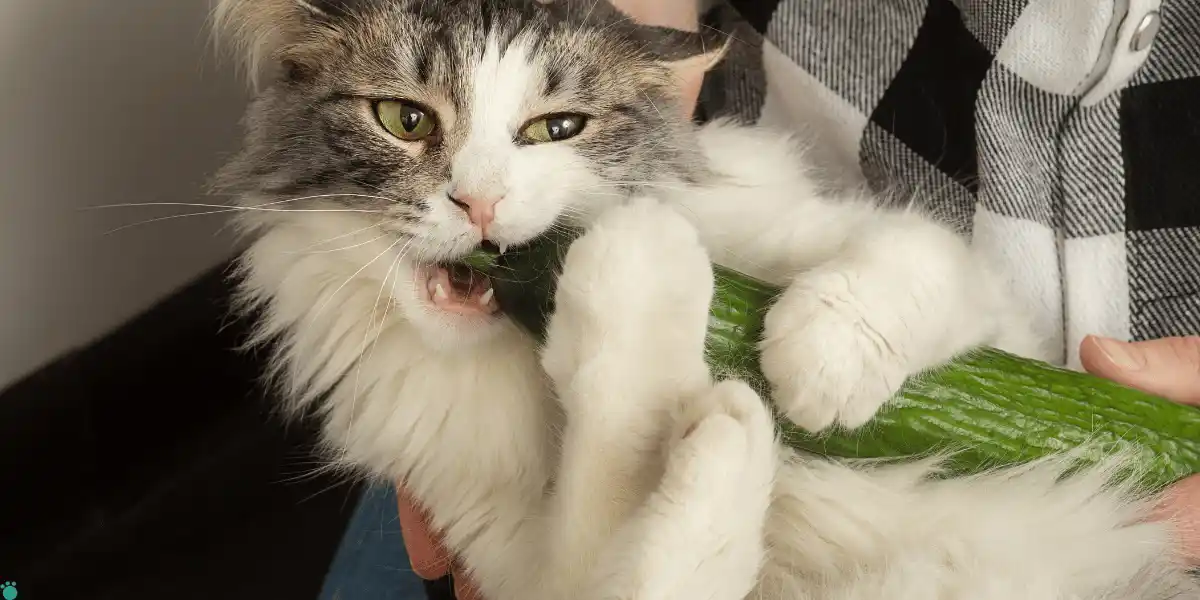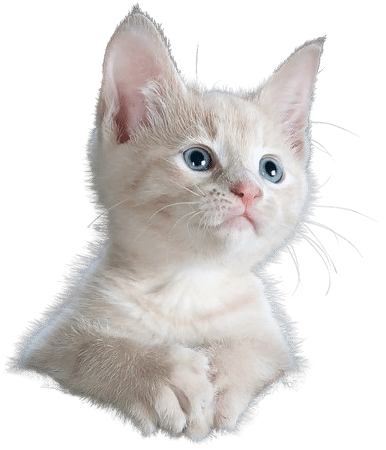As dedicated cat parents, we know the drill. One minute, you’re enjoying your favorite meal, and the next, an eager, whiskered face is peering up at your plate. And now you’re wondering, “Can cats eat beans?”
The answer is yes and no. While some beans are safe for cats to consume, others may be harmful.
Let’s take a closer look.
Can cats eat beans?
Yes, cats can eat beans. Plain, cooked beans, if offered occasionally, are safe for your cat.
Can Cats Eat Beans Safely?
Safe Beans for Cats
Some beans are indeed safe for our furry friends. Let’s take a look at which ones pass the feline-friendly test.
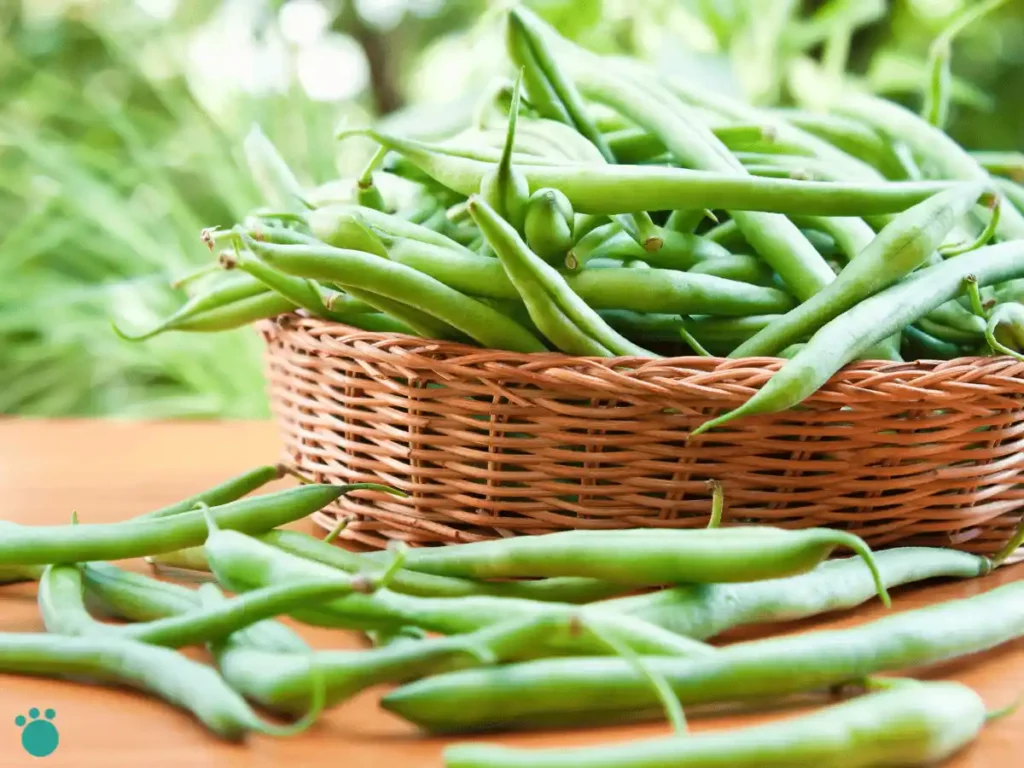
- Green Beans: These are often recommended as a healthy treat for cats due to their high fiber content and low-calorie count. Green beans can be a great addition to your cat’s diet, especially if you want to help your kitty shed a few extra pounds.
- Cooked Lentils: When properly prepared, lentils provide a good source of protein and fiber. It’s crucial to ensure the lentils are thoroughly cooked and served without any added seasoning.
- Chickpeas: These are safe for cats in moderation. Like lentils, they need to be thoroughly cooked and unseasoned. Although they might not be your cat’s first choice, they’re a nutritious option to have on hand.
Other beans that get the green light include black beans, soybeans, pinto beans, and kidney beans. These provide our feline friends with essential nutrients and can be a good treat alternative when served correctly.
Potentially Harmful Beans for Cats
Unfortunately, not all beans are safe for our fluffy pals. Let’s explore which ones you should keep out of your cat’s reach.
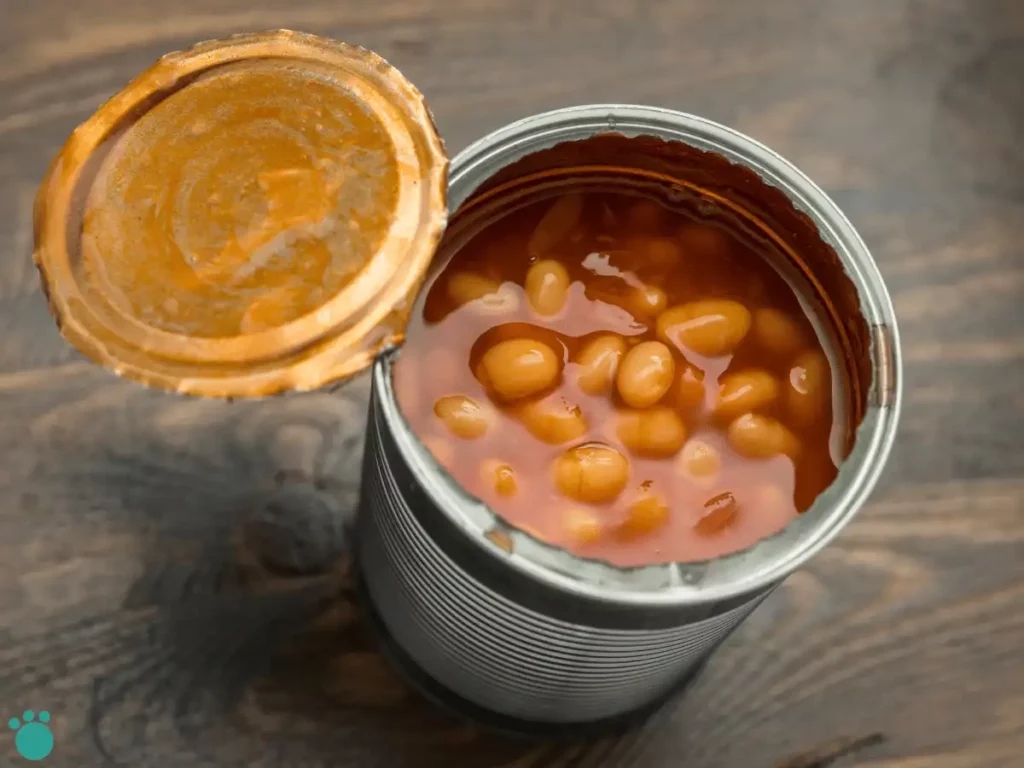
- Canned Beans, for instance, are a no-go due to their high sodium content and preservatives. If consumed regularly, these can harm cats, causing everything from an upset stomach to serious health issues.
- Baked Beans: As tempting as it might be to let your cat lick the plate after your baked bean dinner, baked beans are unsuitable for cats. The added sugars and spices in baked beans can wreak havoc on your cat’s digestive system.
Also, avoid feeding your cat refried beans and raw beans. Refried beans often contain ingredients like onions and garlic, which are toxic to cats.
Raw beans, on the other hand, can be tough to digest and may lead to gastrointestinal issues.
Nutritional Benefits of Beans for Cats
While cats are obligate carnivores and require a meat-based diet, supplementing with beans can offer additional nutritional benefits.
Excellent Source of Protein & Fiber
Beans are rich in protein, providing an added source of this essential nutrient for our furry companions.
While meat should still be the primary protein source, beans can supplement this need, especially for indoor cats leading a less active lifestyle.
The fiber in beans also plays a crucial role in your cat’s digestive health. It can assist in maintaining a healthy weight, as fiber promotes a feeling of fullness, thereby preventing overeating.
It can also help keep your cat’s digestive system running smoothly, reducing the risk of constipation and promoting overall gut health.
While beans can be a beneficial addition, it’s important to remember that they should not replace meat in your cat’s diet.
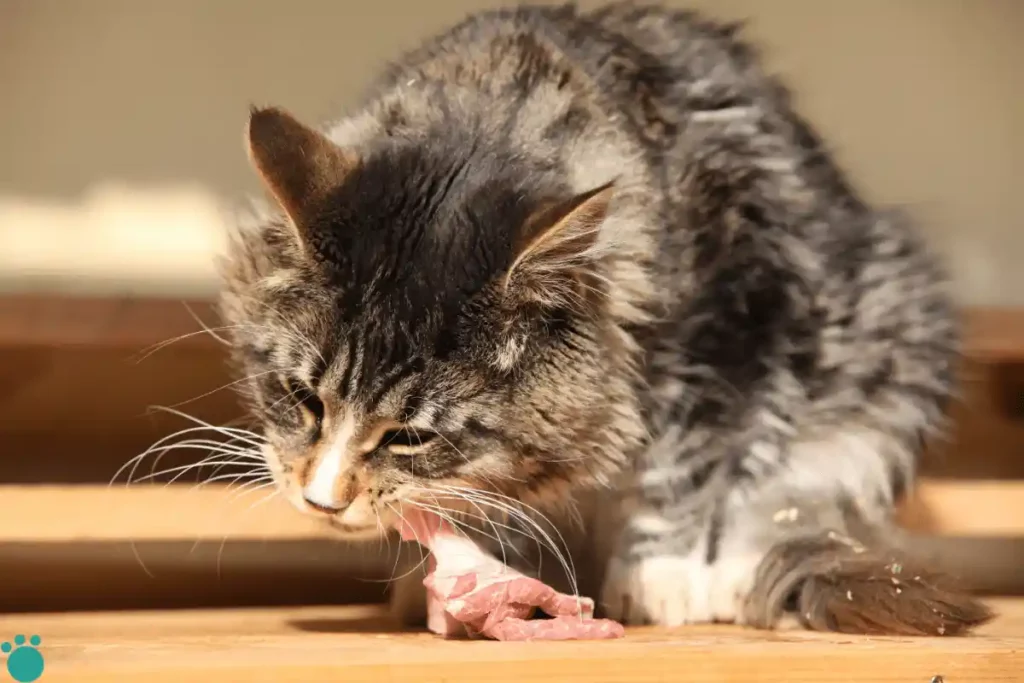
Cats require specific nutrients, like taurine and arachidonic acid, that they can only get from meat. Therefore, think of beans as a supplement to their regular diet, not a replacement.
Beans as an Occasional Treat vs. Regular Diet for Cats
Cats eat beans as a treat
Cats can indeed enjoy beans as an occasional treat. But remember, the keyword here is “occasional.”
Beans should be served plain or cooked, and they must be free from added spices or salt.
Can Cats Eat Beans Regularly?
Cats, by nature, are obligate carnivores. This means their primary diet should consist of meat.
While beans do pack in some protein and fiber, they don’t provide the complete nutrition that cats require.
If beans are consumed in large amounts or too frequently, they can lead to digestive issues. Think of beans as the occasional garnish on your cat’s gourmet plate, not the main course!
It’s always a good idea to check with your vet before introducing new foods like beans into your cat’s diet. Especially if your feline friend has specific health concerns or dietary needs.
Your vet can provide guidance on portion sizes, frequency, and the safest way to serve beans.
Feeding Guidelines
How to Introduce Beans to Your Cat’s Diet
Start slowly if you’re considering adding beans to your cat’s diet. Introduce a small amount first to assess your cat’s tolerance.
It is crucial to observe your cat closely for any signs of allergies or adverse reactions, such as changes in behavior, appetite, or bowel movements.
Cooking Beans: Safety First
When preparing beans for your cat, remember to cook them thoroughly. Raw or undercooked beans contain a natural toxin called lectin, which can harm cats.
Cooking beans properly will eliminate this potential threat.
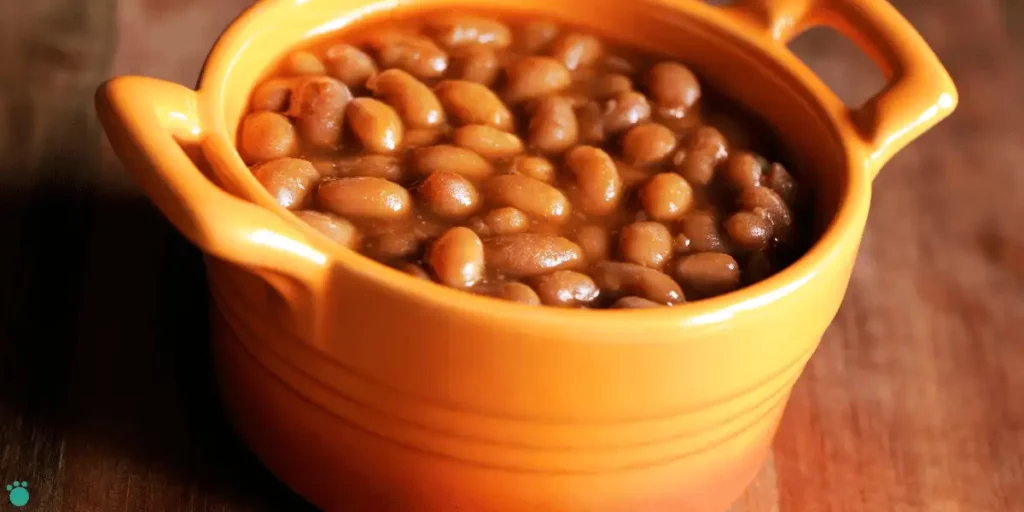
Additionally, while you might enjoy your beans with a dash of salt or a sprinkle of spices, it’s best to keep it simple for your feline friend. Many seasonings common in human cuisine, such as garlic and onion, can be toxic to cats.
Portion Control
Beans can be a beneficial addition to your cat’s diet, but like everything else, moderation is key. Overfeeding beans could lead to weight gain or other health issues.
A teaspoon or two of cooked beans, a few times a week, should be enough to reap their nutritional benefits without upsetting the balance of your cat’s diet.
Risks & Precautions When Feeding Beans to Your Cat
Gas and Digestive Upset
Integrating new food into your cat’s diet can be quite an adventure, but going slow and steady is essential. This rule is especially true when introducing beans.
Too many beans too quickly can lead to gas and digestive discomfort in your furry friend.
So, how do we prevent this? Start by gradually adding beans to their diet, and closely monitor your cat for any signs of discomfort or adverse reactions.
Allergies
Cats can develop allergies to certain foods, and yes, beans are on the list. So, while you’re excitedly incorporating beans into your cat’s meals, keep an eye out for any allergic reactions.
Indicators can range from itching to vomiting or diarrhea. If your cat exhibits any of these symptoms, consult your vet immediately.
Finding the right diet is crucial for cats with sensitive stomachs. Consider exploring options for the best cat food for diarrhea to help manage and alleviate symptoms.
Are Beans Used in Commercial Cat Food?
Beans are typically included in commercial cat food formulations for their protein and fiber content. They contribute to the overall health of the digestive system, but they’re not crucial to a cat’s diet.
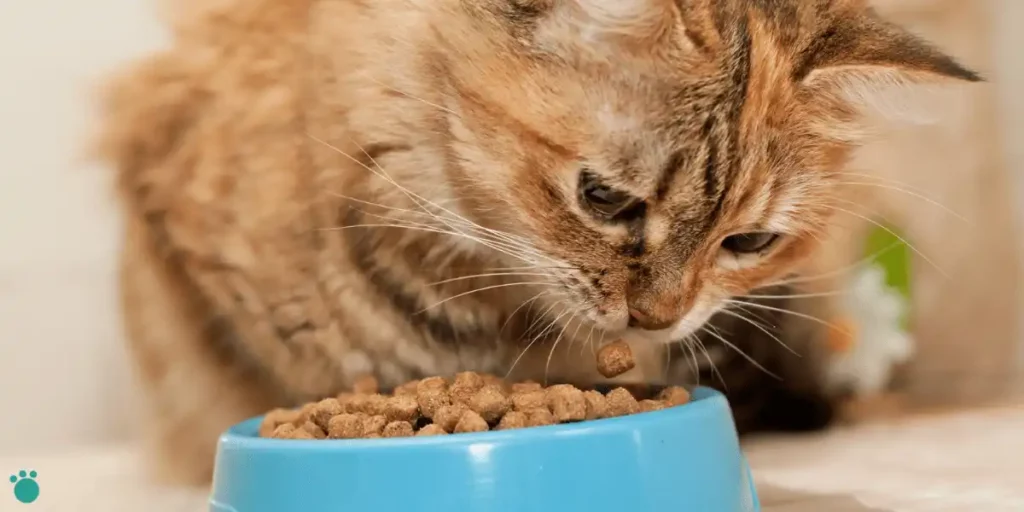
Your cat is a carnivore at heart, and it gets all the nutrition it needs primarily from the meat components of its food.
In commercial cat foods, beans often serve as a filler or as an extra source of protein and fiber. So, while your cat’s food might contain beans, it’s not a dietary staple they can’t live without.
Conclusion
Beans can be part of your cat’s diet with a bit of caution, a watchful eye, and a gradual introduction.
Every cat is unique, and what works for one might not work for another. Always introduce new foods slowly and monitor your cat’s reaction.
When in doubt, consult with your vet. And remember, while beans can be a great treat, they’re no substitute for a balanced cat diet.
Frequently Asked Questions
Can cats eat chickpeas?
The short answer is yes, but only in moderation. Chickpeas are not toxic to cats, but they can be difficult for our feline friends to digest, potentially causing gastrointestinal upset.
Can cats eat black beans?
Black beans aren’t poisonous to cats. However, they’re not part of their natural diet and might cause digestive discomfort if ingested in large amounts.
Can cats eat refried beans?
Refried beans often contain ingredients like garlic and onions, which are toxic to cats. Plus, the high-fat content can contribute to obesity and other health problems in cats.
Can cats eat green beans?
Unlike other bean varieties, green beans are low in calories and can be a healthy treat for overweight cats. They’re also easier to digest.
How many beans can a cat eat?
This question has no definitive answer, as it depends on your cat’s size and overall health. Always consult your vet before introducing a new food item into your cat’s diet.
Can cats eat baked beans?
Baked beans often contain sauce made with sugar, salt, and other spices, which can harm cats.
Can cats eat kidney beans?
Kidney beans are not toxic to cats but can be hard to digest, especially if they’re raw or improperly cooked.
How often can a cat eat beans?
Cats can eat beans occasionally as a treat, but they should not be a regular part of their diet. It’s best to limit bean consumption to once or twice a week at most.
